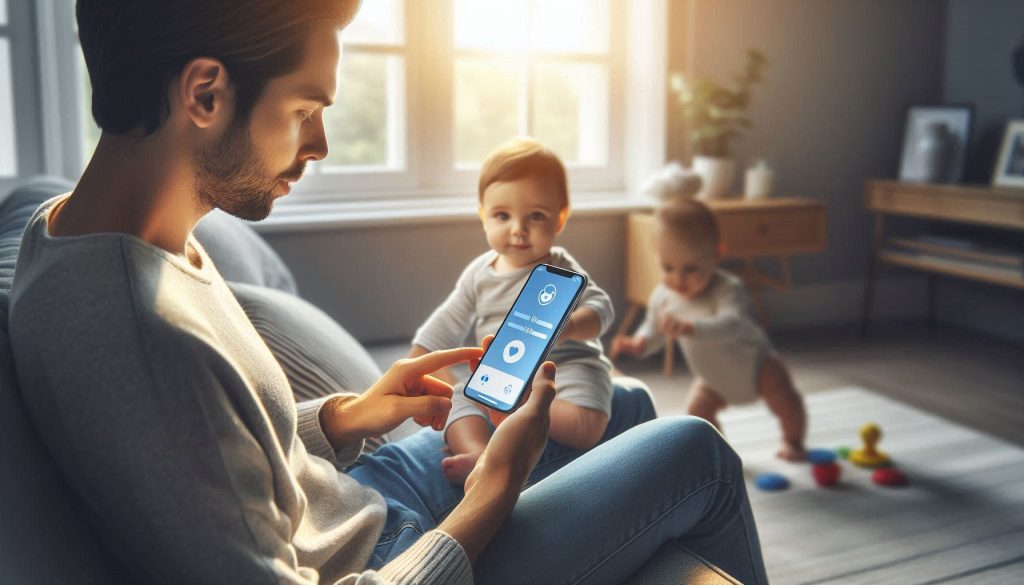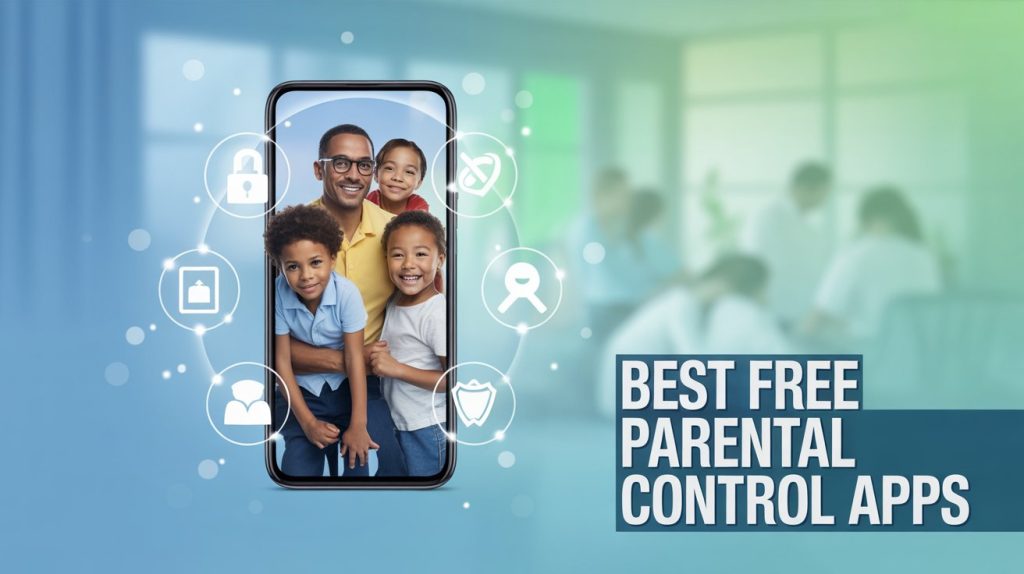Best Cross Platform Parental Control App (2025 Global Guide)
Modern families live across screens — tablets, phones, laptops, smart TVs, gaming consoles, and even classroom Chromebooks. Kids switch platforms so quickly that parents often feel as if they’re chasing a moving target. One rule works on the iPad, another on the Android phone, and none of it syncs together.
That’s why cross-platform parental control has become one of the most important tools for today’s families — simple, consistent digital guidance that works across all devices, regardless of brand, operating system, or geography.
In 2025, the best parental control apps don’t just block content; they help parents build digital balance, emotional awareness, and healthy screen habits while giving kids room to learn, play, and grow safely. This guide breaks down what truly matters — and which app rises above the rest for families in the USA, UK, India, Australia, and Canada.

Why Cross-Platform Control Matters Today
Families no longer use one device or one ecosystem. Children move across:
- iPads and iPhones
- Android mobiles
- Windows desktops
- Smart TVs
- School-issued Chromebooks
- Laptops used for homework
- Gaming consoles (PlayStation, Xbox, Nintendo)
Parenting challenges arise when each platform has different settings, restrictions, and control options. The result is:
- Inconsistent screen rules
- Loopholes kids quickly discover
- Confusing limits across devices
- Difficulty monitoring patterns
- No unified dashboard
- No emotional insight behind behaviour
Cross-platform parental control solves this by connecting every device into one predictable, easy-to-manage system, giving kids structure and parents clarity.
What Makes a Parental Control App “Cross-Platform”?
To truly support modern families, a cross-platform parenting app must:
1. Work on all major operating systems
iOS, Android, Windows, macOS, Smart TVs, Chromebooks.
2. Sync controls across all devices
Screen time limits shouldn’t reset on a different device.
3. Track behaviour holistically
Not just usage time — but patterns:
- What triggers tantrums
- When screen time spikes
- Which apps affect mood
- How transitions impact behaviour
4. Provide age-appropriate guidance
Toddlers, pre-schoolers, early learners, and teens all need different rules.
5. Help parents stay consistent
Visual timers, routines, schedules, and reminders must work across countries and time zones.
6. Support digital wellbeing
Not just monitoring — teaching:
- healthy digital habits
- emotional awareness
- balanced screen routines
- mindful usage
7. Offer data-driven insights
Parents need to see behavioural patterns, not just block apps.

The Essential Features Every Cross-Platform App Should Have in 2025
✔ Screen Time Scheduling
Daily limits, weekend flexibility, and device-free family hours.
✔ Content Filtering
Age-based filters, educational prioritization, and safe browsing.
✔ Emotional-Aware Patterns
Observing when overstimulation, fatigue, or frustration drives behaviour.
✔ Routine Building
Morning routines, homework focus time, bedtime wind-down.
✔ Multi-Device Sync
A rule set on one device applies across all others.
✔ Location and Safety Check-ins
GPS safety tools for older kids.
✔ Calm Transitions
Visual timers, countdowns, gentle notifications.
✔ Parent + Child Mode
Let kids understand the rules, not feel punished by them.
✔ Cloud Dashboard
One place to manage every device — on mobile or web.
The Big Problem: Most Apps Are Not Truly Cross-Platform
Many well-known parental control apps fail because:
- iOS permissions are limited
- Android controls don’t match Apple’s
- Laptops have different monitoring systems
- Smart TVs don’t integrate
- Games consoles are isolated
- Some apps overload devices with battery drain
- Many ignore behaviour psychology
Parents end up juggling three different systems — none communicating with each other.
This is why the demand for a single unified solution is exploding worldwide.
The Real Question: Which App Does All of This Well?
After reviewing what global families actually need in 2025 — consistency, emotional insight, multi-device management, and age-based routines — the standout is TinyPal Parenting App.
But before we compare, here’s what families say they struggle with the most:
Global Parent Pain Points
- “He sneaks screens when I’m cooking.”
- “Limits work on the tablet but not the phone.”
- “She melts down when screen time ends.”
- “I don’t know which device causes the most overstimulation.”
- “Weekends become screen chaos.”
- “Homework time turns into YouTube time.”
- “I need one dashboard for everything.”
A cross-platform app must solve all of these consistently.

TinyPal: The Best Cross-Platform Parental Control App of 2025
TinyPal stands apart because it isn’t just a monitoring tool — it’s a parenting system built with child psychologists, behavioural experts, and digital wellbeing researchers.
What makes TinyPal the best globally?
1. Works on Every Device Kids Touch
iOS, Android, Windows, macOS, Chromebooks, Smart TVs.
Parents no longer worry that rules won’t sync across devices.
2. Intelligent Screen Time Routines (Not Just Blocking)
TinyPal doesn’t say “stop using screens.”
It teaches kids how to use screens better.
Parents can set:
- morning focus routines
- homework blocks
- device-free mealtimes
- bedtime shut-down
- weekend schedules
The app handles transitions smoothly with calming cues.
3. Behaviour Tracking Powered by Patterns
Most apps track minutes.
TinyPal tracks meaning.
It identifies:
- tantrum triggers
- overstimulating apps
- mood-impacting videos
- peak emotional hours
- content that supports learning
Parents get insight, not just numbers.
4. Personalized for Age, Personality & Culture
Whether you’re parenting in:
- the USA
- the UK
- India
- Canada
- Australia
TinyPal adapts recommendations based on:
- cultural routines
- school timing
- regional norms
- parenting expectations
- device availability
Digital parenting looks different in every region — TinyPal respects that.
5. Family Routines That Kids Actually Follow
Routines work when they are:
- visual
- predictable
- age-matched
- screen-balanced
TinyPal helps create morning routines, study routines, evening wind-down routines, and weekend rhythms kids understand.
6. A Child Psychology Layer Behind Every Feature
Every part of TinyPal is built around:
- emotional regulation
- positive reinforcement
- developmental readiness
- secure attachment
- calm transitions
Kids learn why rules exist — not just follow them.
7. Co-View & Learn Together
TinyPal helps parents turn screen time into learning time.
It recommends:
- educational content
- creative apps
- digital life skills
- mindful usage habits
Families grow together — not fight together.
8. Weekly Insights + Progress Reports
Parents receive simple summaries:
- best routines
- toughest hours
- content impact
- device usage patterns
- emotional behaviour trends
Instead of micromanaging, parents learn where guidance is needed.
Why TinyPal Is #1 in USA, UK, Canada, India & Australia
Different countries, different parenting realities:
🇺🇸 USA
High device exposure + school screens
→ TinyPal supports academic balance.
🇬🇧 UK
Strong emphasis on mental wellbeing
→ TinyPal tracks emotional responses.
🇨🇦 Canada
Digital citizenship education
→ TinyPal promotes mindful consumption.
🇦🇺 Australia
Outdoor lifestyle
→ TinyPal balances screen vs nature time.
🇮🇳 India
Extended family support + academics
→ TinyPal structures routines & study time effectively.
One system — adapted globally.
How TinyPal Protects Kids Emotionally & Digitally
TinyPal approaches digital parenting in 3 layers:
1. Safety
Content filtering, safe browsing, app blocking, suspicious activity alerts.
2. Balance
Screen time routines, transitions, offline activity encouragement.
3. Growth
Healthy digital habits, emotional awareness, learning-focused suggestions.
This combination is what makes TinyPal a complete parenting ecosystem — not just a control tool.
Real Parent Examples
Parent from UK:
“We stopped arguing about screen time. TinyPal created balance I couldn’t achieve alone.”
Parent from India:
“Homework finally gets done on time. The routines were a game changer.”
Parent from USA:
“One dashboard. All devices. No stress.”
Parent from Australia:
“The emotional tracking helped us understand behaviour triggers.”
Parent from Canada:
“Our weekends are calmer now — the schedule keeps us on track.”
Final Thoughts
Cross-platform parenting is the new necessity — not a luxury. Families use multiple devices, shifting apps, and varied content every single day. The old “one-device” parental control approach simply can’t keep up.
What parents need today is consistency, clarity, emotional understanding, and tools that genuinely support healthier digital habits — not tools that punish or block without context.
TinyPal represents the evolution of parental control:
a parenting partner — tuned for balance, emotional wellbeing, and digital wisdom.
👉 Explore TinyPal Parenting App: https://tinypal.com/parenting-app/
